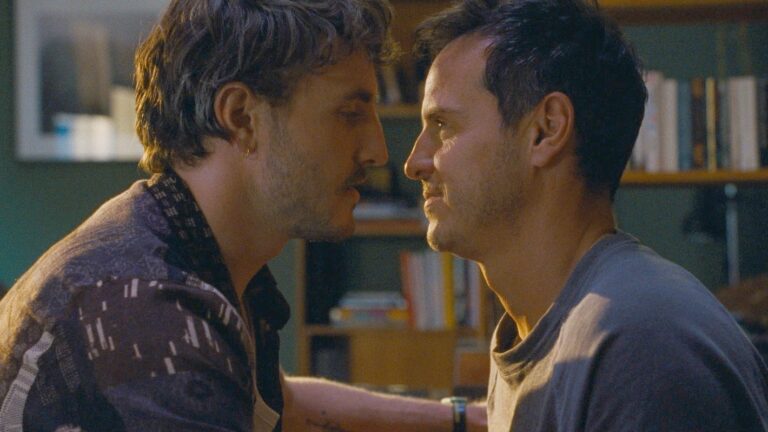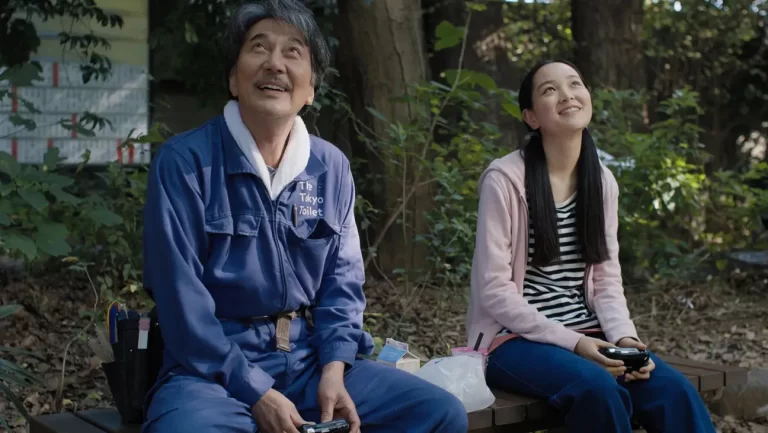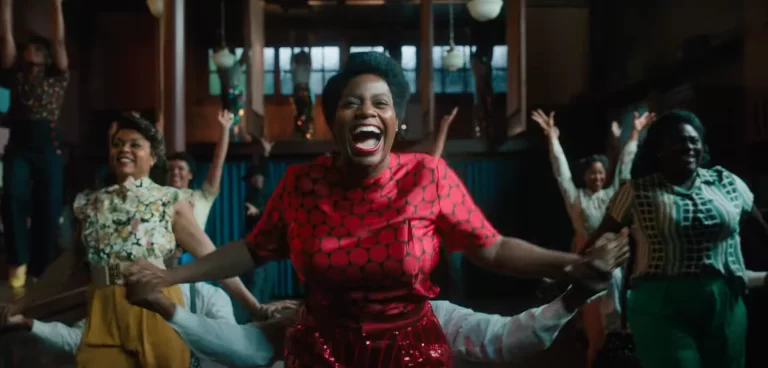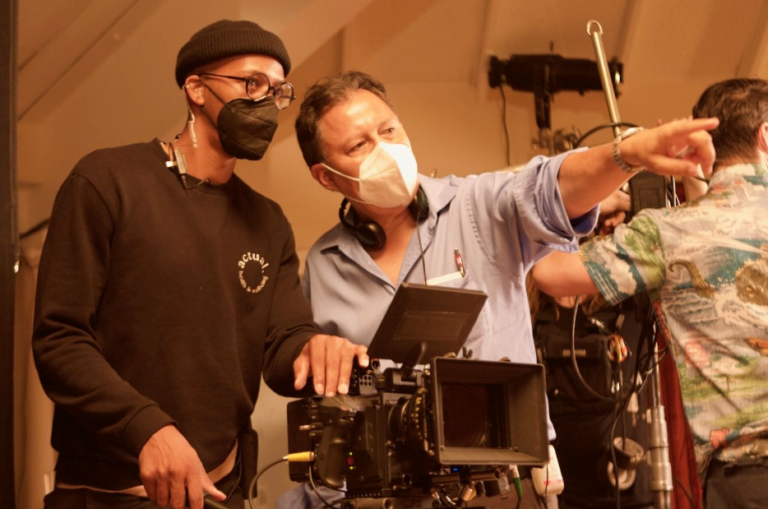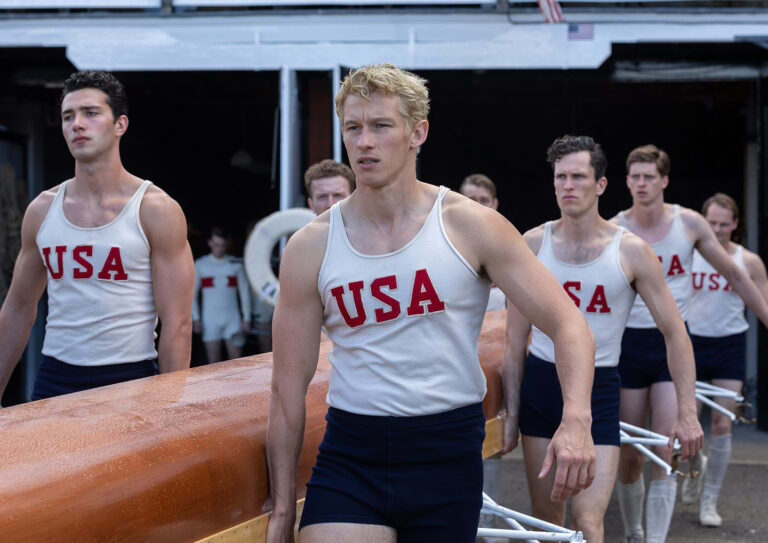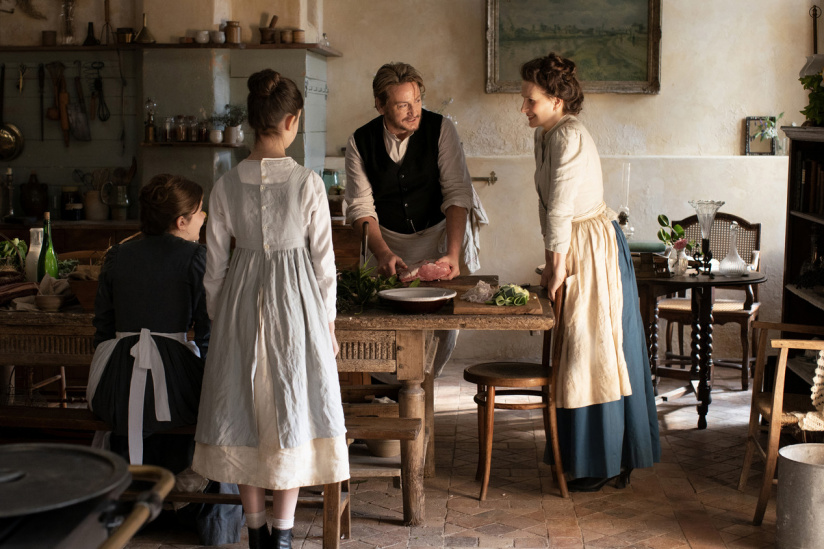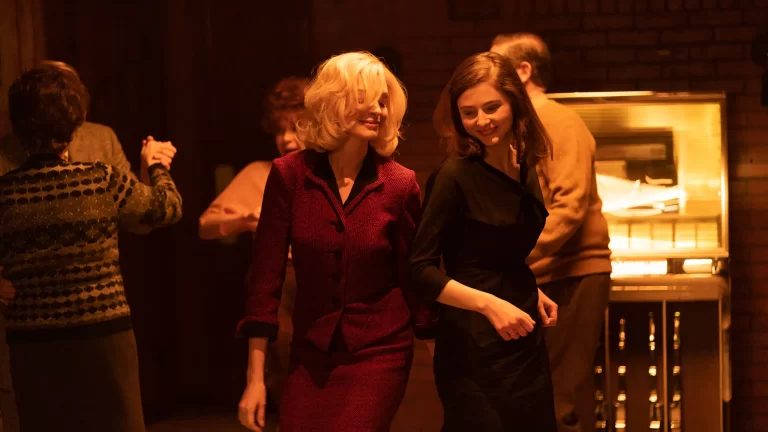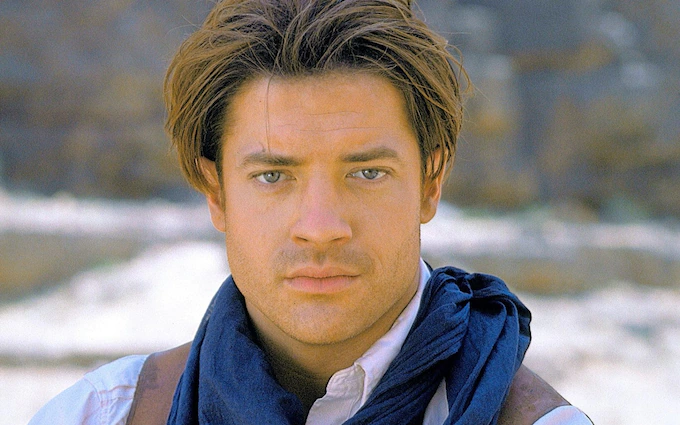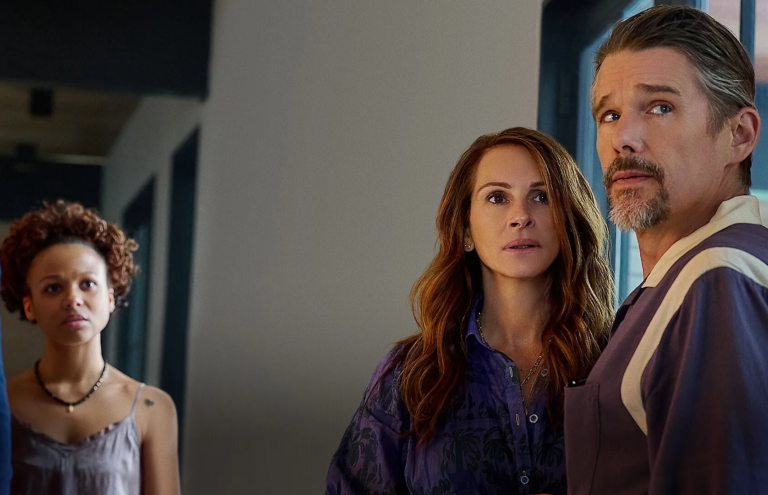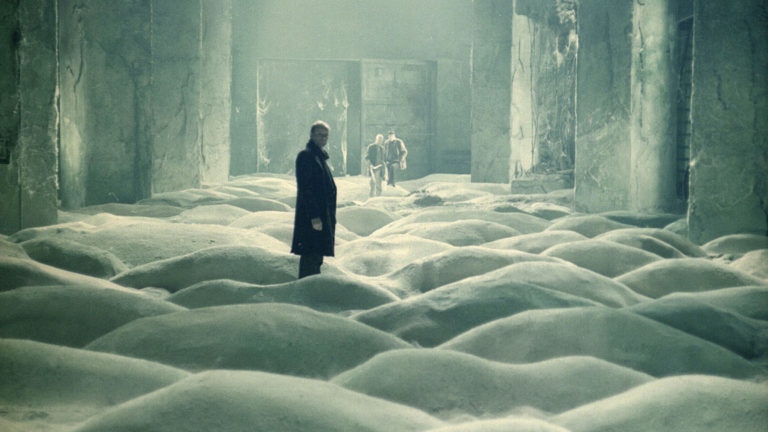Music editor Yuri Gorbachow has been a veritable mainstay in the music editing industry since the early 1990s. During that time, he has worked on hit television series such as The Handmaid’s Tale and Vikings. He puts this extraordinary success down to his unique creative process, which sets him apart from others in the field and allows him to develop strong creative partnerships with composers. He recently completed work on the production of the third season of Vikings: Valhalla and kindly provided us with the chance to delve into the twists and turns that fans can look forward to.
Zita Short had the opportunity to sit down with Gorbachow and discuss his lengthy and storied career in the music editing field.
Zita Short: For the average layman, the music editing discipline appears somewhat mysterious and unknowable. Despite the fact that it plays a hugely significant role in weaving together music and visual content, those outside of the film industry may only have a faint notion of what the job entails. Would you mind walking me through the role that music editors play in the creative process?
Yuri Gorbachow: Of course. I I like to break the music editing process down into two categories. Number one is working with the composer on the front end and that involves the music, spotting sessions, making some detailed notes and then being able to provide click tracks. Although that doesn’t happen very much anymore, building record sessions in advance and also attending the scoring stage and making sure that things stay in sync that that had been planned.
This is all kind of the front end work and I’d say that a lot of it is being absorbed now by other departments. For example, scoring is now its own little module and composers rarely attend their own scoring sessions. They’ll sit in with some kind of streaming system but many of them get very confident and they can just let the live music get recorded. So, in a way, the sessions are already built. They can be built by somebody else. I certainly haven’t attended a live scoring date in a long time. That front end is essentially making sure we get a good idea of what has to happen and then being able to make very meticulous notes. As well as giving the composer a good guide to what it is that they need to do.
So, the second part I call working with the composer on the back end. That is once they’ve written the music; they’ll send what would be called a first draft to me. Then from there I can make presentations, we can get revised notes, we can work on the revisions. The composer delivers that to me. I get it off to the music stage, right to the mix stage. There’s lots of revisions that happen on the dub stage, so I’ll handle that. And then there’s versioning. What else? Queue sheets, deliverables. There’s also building a library because in television series work, we want to make sure we get to use a queue over again, right?
We don’t want to overuse it, but we certainly want it available, especially when it’s in the memory of people like the directors, exec producers who’ve heard it. So I’ll make sure that it’s properly described so we can find it very quickly. Who knows? It might be the perfect piece of music to use down an episode or two.
Zita Short: How does one break into the music editing industry? Was it difficult to get your start in a highly competitive field?
Yuri Gorbachow: I don’t think it was that competitive when I started. It’s been a while. I was an assistant engineer at a music studio and we were going through an economic downturn and the owner decided we better find something else to do and they broke into a little bit of audio post. So I was working on a particular TV series. I was just an assistant and my colleague was actually doing the session. He was working with a composer who had written 150 pieces of music out to commercial.
So the job was to lay up the music onto the multi-track system and prepare the music so that it fit the visuals. So essentially we were working with quarter inch tape. We would lay it up on our machine and trip it through the console and on to tape. Then we would just repeat creatively and the show would be finished and usually we could do it in one day. So by 4PM we had clients come in, they’d review the music and say “OK, let’s change this cue,” or “is this all good?” and we would go to the mix on that.
For me, my client and my colleague were working together on that every Friday morning. One Friday morning, my colleague’s wife went into labor and she was off to hospital and so was so was Frank (colleague). So the client, the composer, had said “listen, I don’t want to lose the day. I’ve watched Yuri work, I see him prepare the sessions, he lays in the opening and closing credits and he and he gets ready for the session. I’d be willing to work with him for this day.” So I got the call to to sit in the chair and to lay up the music. It was the same thing, just trip it in from the quarter inch tapes and we did a good enough job done in just the same amount of time.
I loved it and that was kind of the beginning of the end of my assistant days. So Fridays I was a music editor, Tuesday I became a music editor and then Monday, Wednesday and Thursday I was an assistant. I kept the place nice and tidy and made sure everything worked and that type of stuff. So that’s how I got into it. I think it’s based around need and any post-production shop that’s dealing with editing and mixing knows that they have to do dialogue work and sound effects and foley and all of this requires editing.
So it’s not unusual that the music would need to be edited as well and so you should have someone on staff. So either that can happen as you hire someone on staff or you work with a mentor-protege model and that way you can work with a mentor who has their own business. I’ve been in business, self-employed, since 1992, so that’s kind of what I do. I go after music editing jobs. People know me as a music editor and they would hire me as a music editor to do that which needs to be done.
Zita Short: Do you feel as though the industry has gone through dramatic changes over the past few decades?
Yuri Gorbachow: You know, in the mid-1980s we were still in Sprockets, television was still being done with Magstock Magfilm and it was cut with a razor blade. In the mid-1980s towards the 1990s, there was a kind of tape lock phenomenon where we had simple time codes and we were striping these multi track tapes. We were basically borrowing from the music industry. What they would use normally to make albums with were able to use in order to stripe the time code, lock it to videotape and then run with with tape lock. So it was a bit of a hybrid situation and then that was kind of in the early 2000s that Pro Tools became robust. Computing power became a little bit more in time and we’ve been working with Pro Tools as a mixing medium, as a playback editing medium, since probably the mid-2000s.
If I have a beautiful time compressor expander, right to be able to manipulate music, a good reverb unit…all of these things are just top notch now. It’s a joy to watch and in some ways it makes it a little easier but then there are more little things to be taken care of. So it’s a fair amount of work but it’s still quite a compelling career to be in. I love the puzzle of music editing and I love it when some of these things that really aren’t supposed to happen, or at least they didn’t happen back in the day, are now happening. I’m just so happy to solve them.
Zita Short: As part of the post-production process, you also mix audio in your studio. Can you provide us with any insight into the sort of work environment that exists within the studio and the problems that typically arise when you go through the mixing process?
Yuri Gorbachow: So…the mixing process. I don’t know about other music editors, but I used to, you know, work in that facility. I started from the back and worked my way up. So I was an assistant engineer. I was doing restripes from what were called laybacks. Then I found myself in the assistant mix chair and then worked my way back into editing the music. I have been a re-recording mixer and was for a good decade. I still jump into the chair whenever possible and I don’t know if that helped in this particular situation.
In music editorial, with the composers that I work with, they’ll send me what I consider to be their first draft. This happens about a week before the dub. My job is to get it prepared for presentation. What do we do with this music? Well, we have to send it out and see what people think. So what I do is I take a couple of hours and I mix it. I work with the dialogues, make sure every word can be heard, get some of the sound effects out of the way, make sure the music is just coming in beautifully and leaving. Then I send it out for a presentation. What I have found is that the fewer revision notes that come in, the better. With an unpolished first mix you might not get a lot of feedback. With asolid mix it’s like a little temporary mix. It’s a final mix but for a very small group of people. If the cue truly needs to be revised, those notes will be focused on that. I I love the idea of having less revised notes. The composers love it. They then do the revisions and they send me that second draft, which I can then take to the dubbing stage.
Zita Short: One also imagines that this is a highly collaborative role that requires a lot of give-and-take on the part of the music editor. You’ve worked with several notable composers, including Trevor Morris and Adam Taylor. How have those creative partnerships developed and evolved over the years?
Yuri Gorbachow: Trevor and I have worked together for going on 17 years now. At first it was kind of like I was assigned to him. That’s kind of how it works. I don’t normally work for composers. I’m hired by the production company to represent their editorial needs. So when I’m assigned to a composer we get together and we just look at what it is that we need to do. Trevor and I just knew what needed to be done in 2006. The show came along and he was able to drop off the queues. I did what I needed to do, which was to get notes to him, and we kind of sorted things out. We were able to get a bigger workflow.
First there was The Tudors and then came The Borgias, we also had a little ATV series called Condor, which is basically a second season. Then we ended up doing Vikings and then, 9 years later, Vikings: Valhalla. It’s been such a great gig and I’m sorry to see it come to an end. That working relationship was kind of based on mutual respect. We knew what needed to be done. I could sit back when Trevor needed to collaborate with the executives. That’s always a key path between them. I don’t interject if I don’t have to. So with Trevor it’s always been fun and sort of a perfunctory role. We get it done and we can enjoy the success.
Working with Adam was a little bit different. I met him in 2015 when I was assigned to work with him for The Handmaid’s Tale and Adam is an incredibly prolific composer. He had worked on a number of different projects but Handmaid’s Tale was kind of his first major TV series. Although he knew what he had to do musically to write the score, I think he was a little nervous when it came time to tackle the workflow of a fast-paced environment. TV runs pretty fast. I kind of realized what I needed to do. I had to drop into that sort of educational role and be able to walk him through it patiently. He’s been awesome and he’s such a great composer. It’s a fairly straightforward process and we also know what to do when things change because that’s always a possibility.
Zita Short: You’re also very concerned with the issue of representing the composer’s best interests at the dub stage. Why do music editors come up against obstacles when attempting to achieve this goal?
Yuri Gorbachow: I’m there to represent them musically on the stage and I know that the job can be very difficult. That’s the puzzle that I love so much, you know. I can’t wait to help fix it. It’s a natural order evolution of the editing process and certain needs then arise. We need to shorten this cue or shorten a number of cues, maybe we need a cue that we didn’t mention beforehand. I’m happy to represent the composer’s best interest because if any of these things truly need to be done they need to be done with care. I certainly like to bring that to the table.
Zita Short: I also wanted to inquire about the significance of unlocking picture cuts within the music editing community. How do music editors typically respond to unlocking a picture cut?
Yuri Gorbachow: It’s the goal we all want, right. We’re all trying to achieve this locked picture. In the 1980s and 1990s it was very difficult to unlock the picture. If you unlocked it, there was a significant price to pay. You probably had to start the editing process over again. It was very difficult to salvage the work that was done. So traditionally we like to wait until we have a locked picture and once we do then we can do all our work. If we’re not locking the picture in time then we have less time to do our work. I don’t mind making a few little nips and tucks. I think it’s now become part of the process. The director or the executive producer can achieve the perfection they were looking for instead of having to let go of that dream. Now they can say that they need to make a small change and that request can be satisfied.
When a picture is about to become unlocked, I still get a little nervous. I imagine myself like a tennis player about to receive a serve. You sort of crouch down low and prepare to return an ace. It’s just a sort of perfunctory or unnecessary role that needs to happen. So there’ll be a few little tweaks and we can respond to that and musically it’s something that I would do. It happens during the mix. Sometimes it can happen even a little bit later where we’re finished with the mix. A little change will be requested and I think that’s perfectly valid in this day and age.
Zita Short: Anyone who has ever seen a making-of documentary about the editing process will be familiar with the concept of temp music. Does it complicate the music editing process somewhat when the director gets too attached to the temp music that they have employed?
Yuri Gorbachow: I like to use the term tempitis. It afflicts many of us. I think of it as a good role model. I think it’s a really great way to communicate musical ideas. You can bring in a piece of music that you like and use it as a role model of sorts. We can use a piece of source music, right? We can use a hit from the radio or we can use scores from other movies and just see how things are unfolding. So the problem with temp is that it sort of starts to sit in the track and it’s heard over and over and over again and subconsciously it becomes sort of part of it. You miss it when it’s taken away and when it comes time to do the music it can be a bit of a challenge.
I think it’s a little bit problematic for a director to tell a composer that they love literally all of the temp music when it might be worth millions in production dollars. If the composer has limited resources available to them and the temp music was produced by the London Symphony Orchestra, it’s just not a fair comparison. I often get brought on just to select temp music and I try to use it as a jumping off point for the composer. It doesn’t have to be limiting and it can spark really important conversations.
People also overlook the fact that temp hate also exists. Sometimes everyone hates the piece of music that has been put in there. No one ever really swaps it out but it can similarly inspire discussions about what it is specifically that we hate about this piece of music. These notes can be given to the composer and they can keep them in mind when crafting original compositions. So that’s kind of my observation after decades of music editing. Temp is wonderful and it should be loved but legally you have to move on from it. The project is better for it.
Zita Short: Looking ahead to the future, we eagerly anticipate the release of the third season of Vikings: Valhalla in early-2024. Can you offer the fans any teasers for the new season?
Yuri Gorbachow: I’ve been sitting on this since June. I’m looking forward to watching it, too. It’s not that much longer now but anyone who’s come to love the Vikings saga likes it because of the stories, the characters. In this upcoming third season there will be more of that beautiful storytelling. We don’t have that much longer to wait and I’m looking forward to it, as well.





